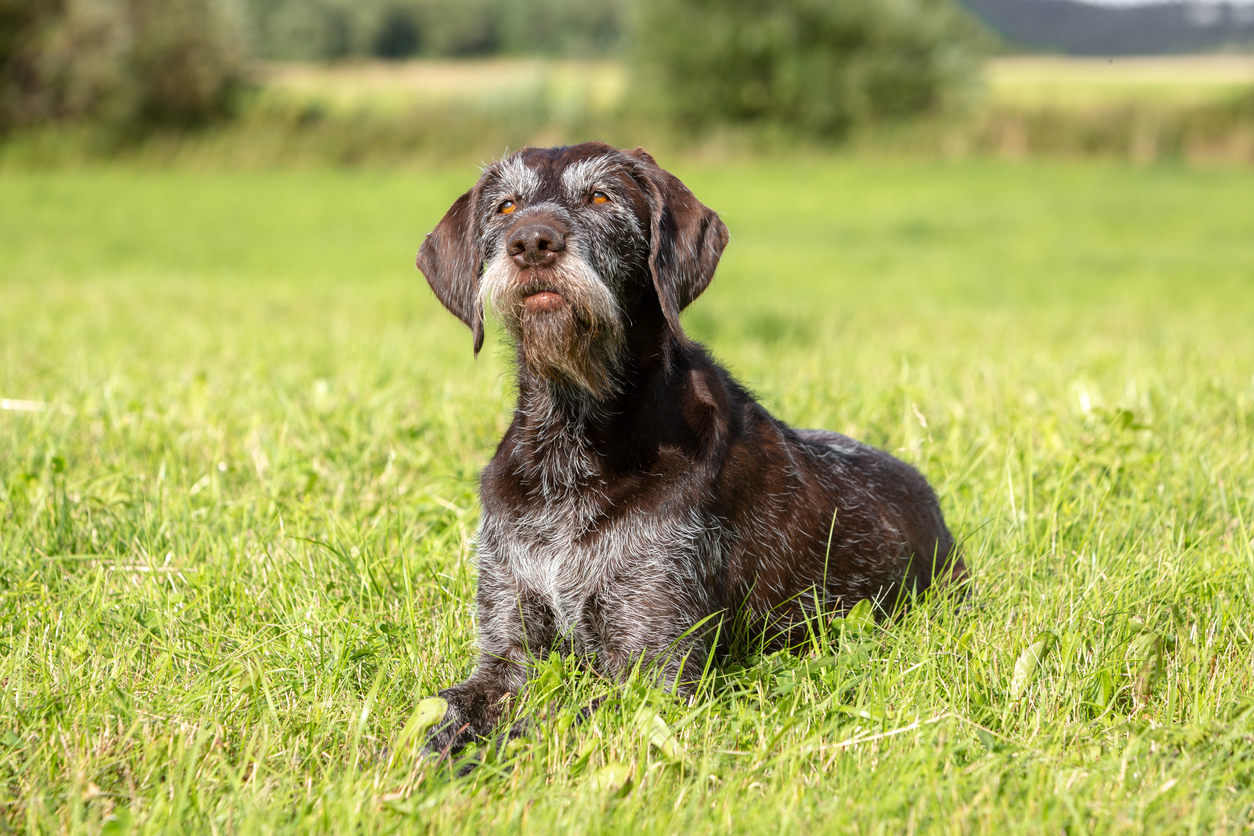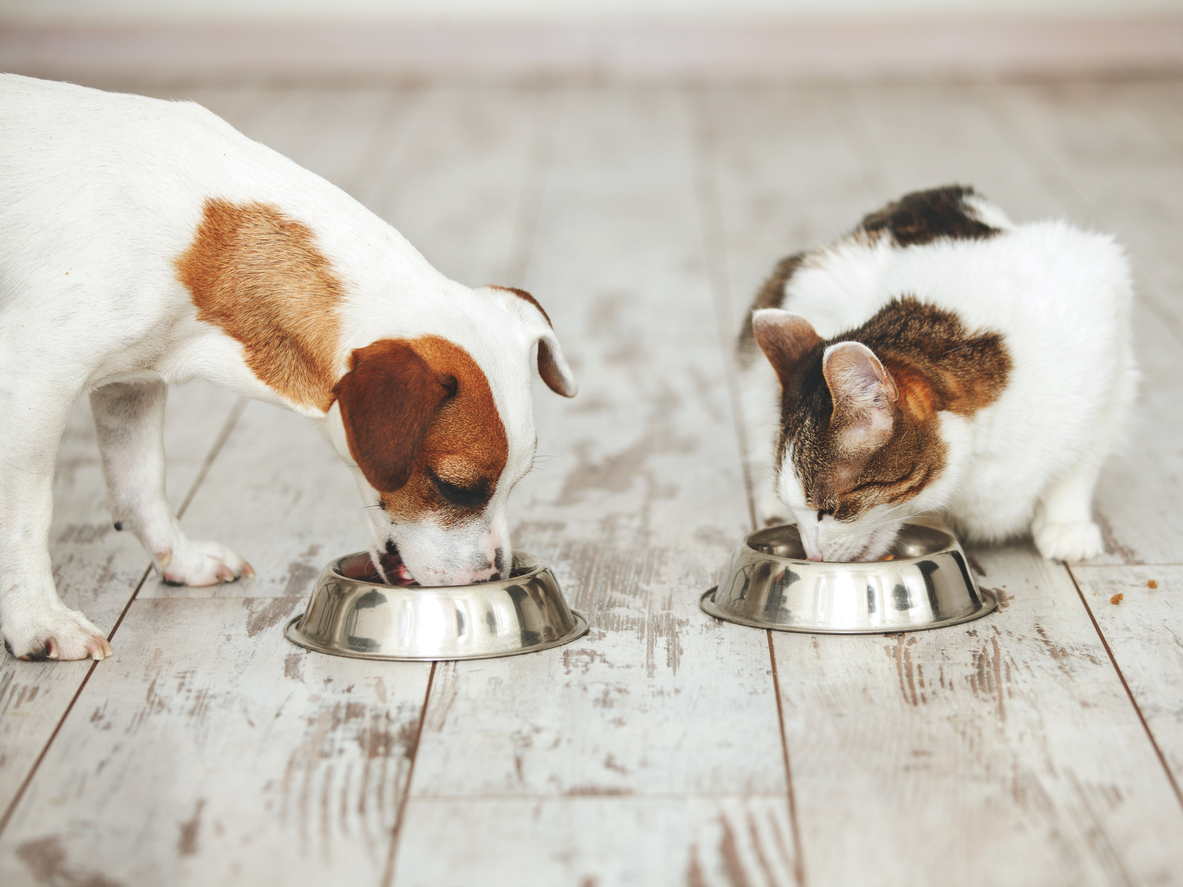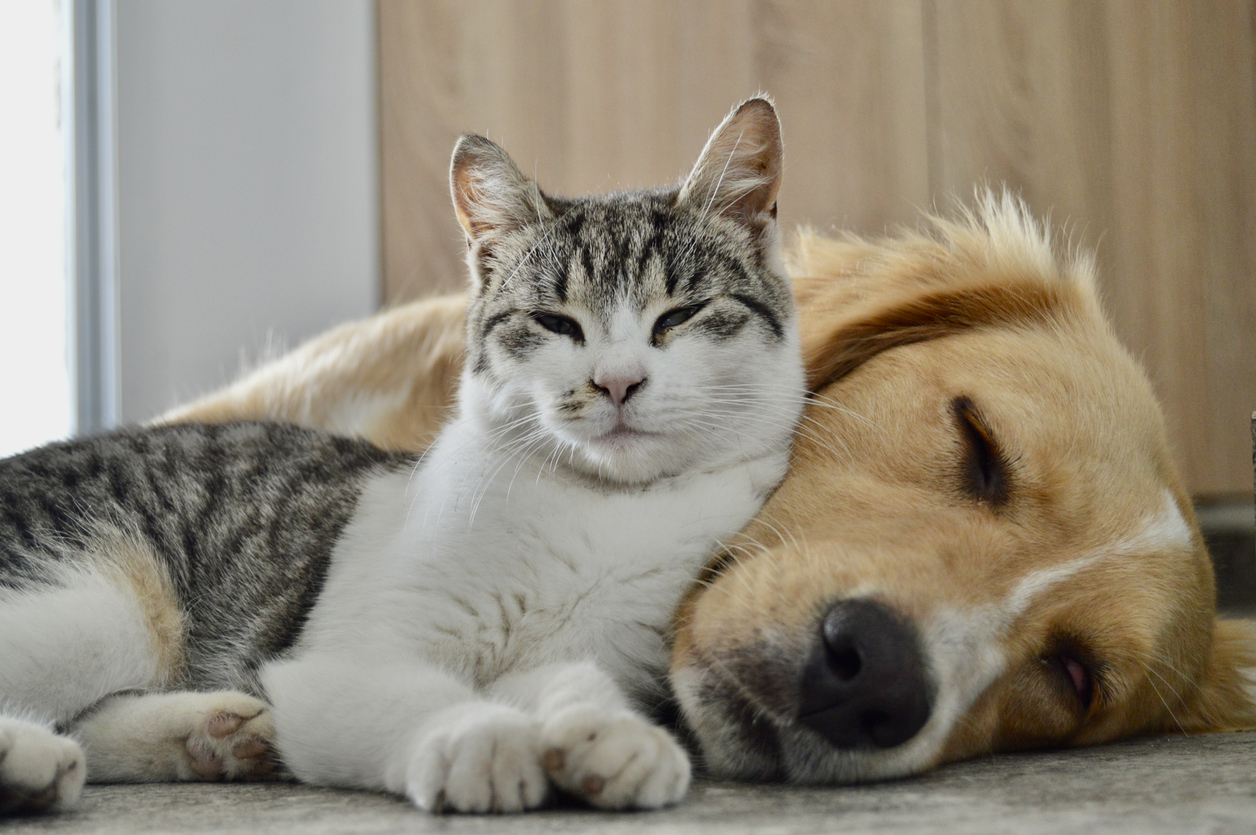All Animal Veterinary Services | Modena, NY
As pets age, their bodies change—and so do their health needs. Senior dogs and cats are more prone to chronic conditions, especially issues involving the heart. While symptoms of heart disease can be subtle at first, monitoring your pet’s breathing at home can offer early insight and support their heart health.
But when is a pet considered “senior”? That depends on species and size. Most cats and small dogs we consider seniors around age 7, while larger breeds may enter their senior years closer to age 6. Each pet ages differently, so it is best to talk with your veterinarian about when to begin senior care screenings.
If you are looking for ways to support senior pet heart health, one of the simplest and most effective steps you can take is observing how your pet breathes at rest. This small daily habit can offer early clues to developing heart issues, especially when paired with regular veterinary care.
How Heart Disease Affects Breathing in Senior Pets
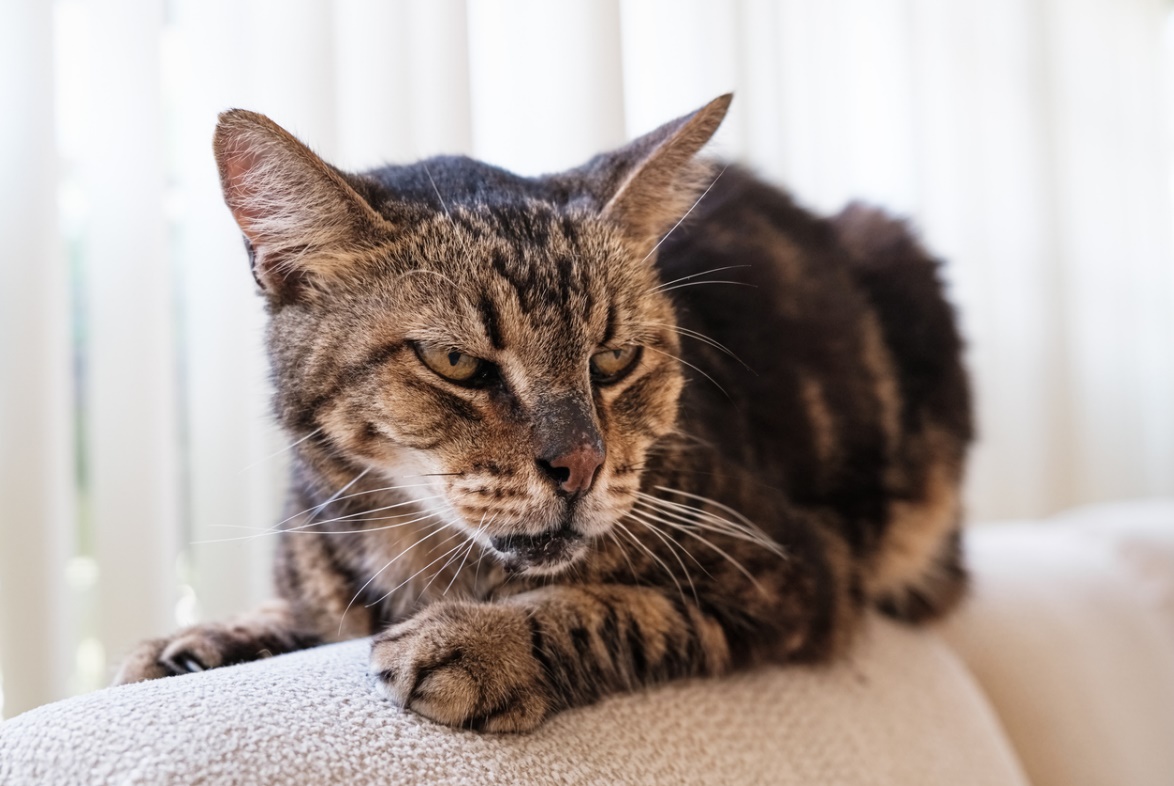
In a healthy pet, blood flows from the body into the heart, then to the lungs to pick up oxygen. From the lungs, the oxygen-rich blood returns to the left side of the heart, which pumps it out to the rest of the body. When the left side of the heart becomes weak or damaged, it cannot keep up with the blood returning from the lungs. Therefore, blood begins to back up in the lung vessels. As pressure builds, fluid leaks into the air spaces of the lungs, taking up space where air should be. We call this condition pulmonary edema. This condition makes it harder for your pet to breathe. Tracking your pet’s resting respiratory rate at home may help you catch signs of heart trouble before they become serious.
Monitoring Resting Respiratory Rate in Senior Pets at Home

Resting Respiratory Rate (RRR) is the number of breaths your pet takes per minute while they are completely relaxed—typically when sleeping or calmly lying down. It helps detect early signs of fluid buildup in the lungs.
To check your pet’s RRR, wait until they are asleep or resting quietly. Count the chest movements (one rise and fall = one breath) for 15 seconds.
Breaths in 15 seconds × 4 = Resting Respiratory Rate (breaths per minute)
Most healthy pets have a resting rate under 30 breaths per minute. If you consistently see 30 to 40 or higher, it is time to call All Animal Veterinary Services. Monitoring this number daily supports senior pet heart health, especially for pets with heart conditions.
Track Your Senior Pet’s Breathing for Heart Health
Download Your Pet’s RRR Tracking Chart
Keeping track of your pet’s resting respiratory rate (RRR) at home is a helpful way to monitor their heart health—especially for senior pets or those with heart disease. Use this blank chart to record your pet’s breathing each day and share it with your veterinarian during checkups
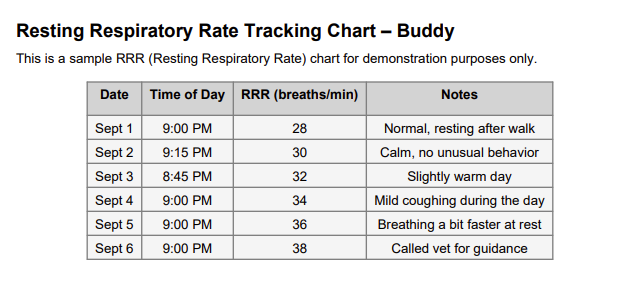
Beyond Breathing: Why Screenings Are So Important
Monitoring your pet’s breathing at home is a valuable way to catch early signs of heart disease, but it’s only part of the picture. Many signs of heart trouble can go unnoticed without proper veterinary diagnostics. That’s why senior pets benefit greatly from regular health screenings—especially when symptoms are subtle or slowly progressing.
According to Texas A&M’s Pet Talk article on cardiac problems in pets, pets with heart disease may show signs such as:
- Coughing, especially at night or during activity
- Rapid or labored breathing
- Fainting or collapsing
- Reduced stamina or tiring easily during walks
- Decreased appetite
- Weight loss
- Swollen abdomen from fluid buildup (ascites)
These symptoms can be easy to miss in the early stages, especially in senior pets who may already be slowing down. That’s why at All Animal Veterinary Services; we recommend the following diagnostic screenings to detect and monitor heart health:
- Bloodwork to check for organ function and other markers that may be affected by heart disease
- Electrocardiogram (ECG) to evaluate the heart’s electrical rhythm
- Echocardiogram to assess the heart’s structure and pumping ability
- Blood pressure monitoring to identify hypertension, which can place additional strain on the heart
- Chest x-rays if fluid buildup in the lungs is suspected
Combining at-home tracking of resting respiratory rate with these veterinary screenings provides a complete picture of your pet’s heart function. This proactive approach can lead to earlier diagnosis, better treatment decisions, and a longer, healthier life for your senior pet.
Ways to Protect Your Pet’s Heart
- Keeping their teeth clean and preventing gingivitis from forming. Gingivitis and tartar can lead to bacterial infections that spread to the heart
- Maintaining a health weight, extra weight causes the heart work harder
- Regular exercise, the heart is a muscle and needs to be kept in shape just like the rest of the body
- Feeding a healthy diet is essential. Good quality protein and a proper balance of electrolytes such as calcium keep the heart strong
A Team Approach to a Healthy Heart
You know your pet better than anyone. If you notice changes in energy, breathing, or behavior, trust your instincts and schedule a visit with our clinic. With early detection, regular checkups, and a little help from you at home, pets with heart disease can live longer, more comfortable lives.
Concerned about your pet’s heart? Call All Animal Veterinary Ca in Modena, NY, to schedule a senior wellness exam. From breathing checks to advanced diagnostics, we’re here to support every stage of your pet’s life and protect their senior pet heart health.
All Animal Veterinary Services
2264 Route 32
Modena, NY
Call us to schedule a wellness exam or consultation.

